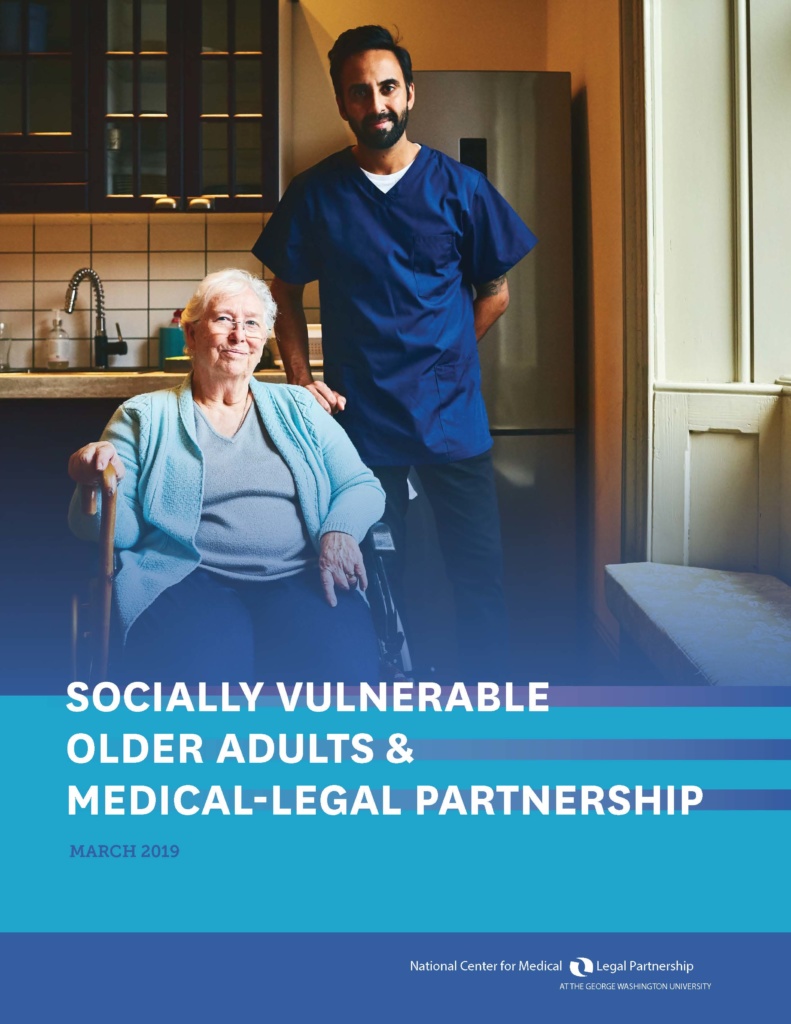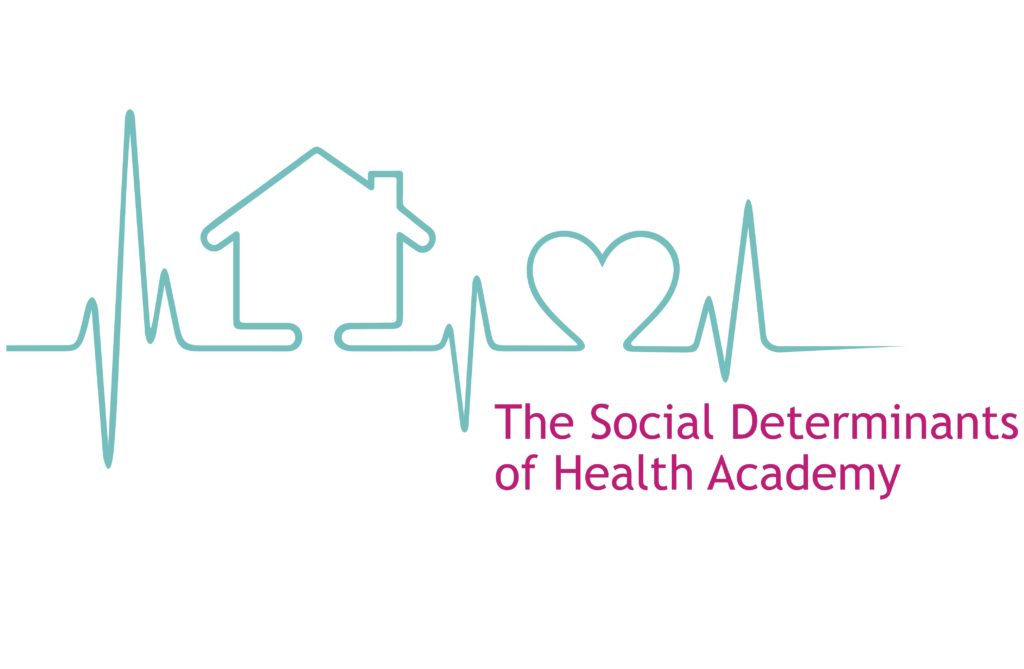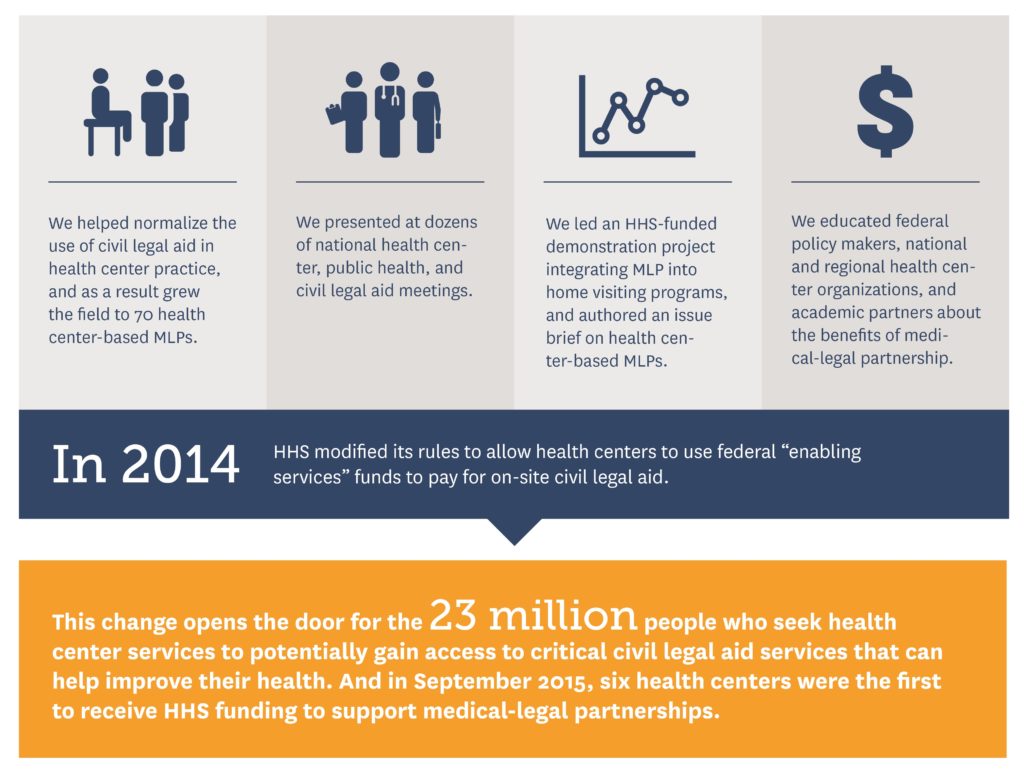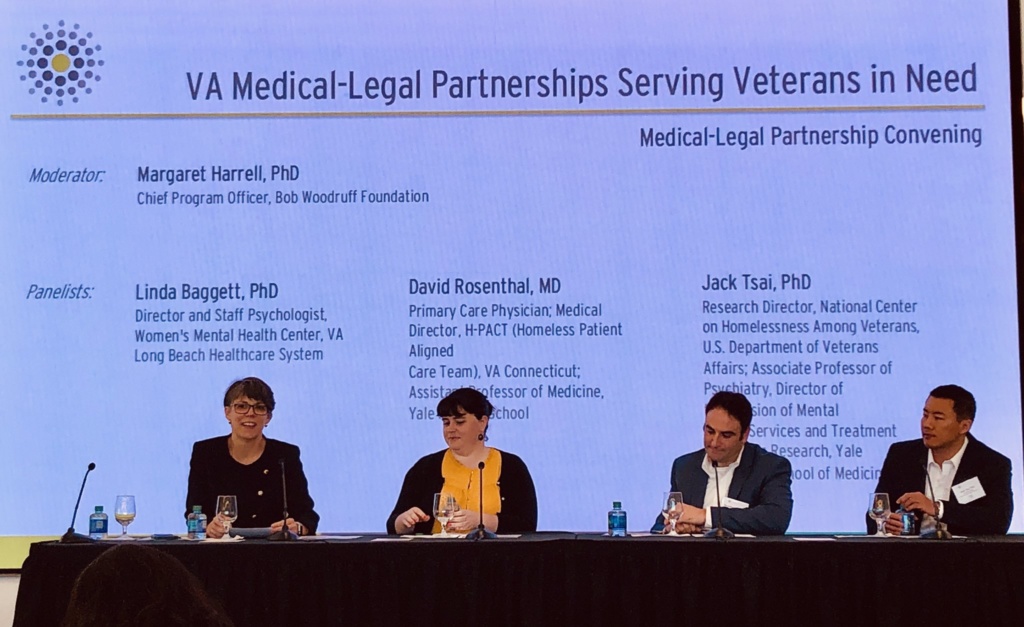As the leading voice for medical-legal partnership, the National Center engages in education, research, and technical assistance to foster a system where all health organizations leverage legal services to better address health-related social needs. Below are a few of the projects we’ve embarked on to create that culture shift.
Hundreds of health care organizations have used our resources to integrate and strengthen medical-legal partnership services at their organizations, and normalize the use of lawyers in their clinics.
 Our tools and publications examine how health care and legal organizations work together to screen and treat patients’ health-related social and legal needs, how this work is financed, and how to overcome structural issues inherent in cross sector work. We’ve released issue briefs on screening, MLP practice, population health, information-sharing, and financing. We’ve also authored reports specifically on the MLP approach in health centers, veteran health care settings, complex care settings, health care for the homeless sites, and school-based health settings. Recently, we’ve published issue briefs examining MLP’s role in addressing the opioid crisis, meeting the needs of socially vulnerable older adults, and providing holistic care for transgender individuals.
Our tools and publications examine how health care and legal organizations work together to screen and treat patients’ health-related social and legal needs, how this work is financed, and how to overcome structural issues inherent in cross sector work. We’ve released issue briefs on screening, MLP practice, population health, information-sharing, and financing. We’ve also authored reports specifically on the MLP approach in health centers, veteran health care settings, complex care settings, health care for the homeless sites, and school-based health settings. Recently, we’ve published issue briefs examining MLP’s role in addressing the opioid crisis, meeting the needs of socially vulnerable older adults, and providing holistic care for transgender individuals.
We’ve trained thousands of health center clinicians and staff on a variety of topics to strengthen their institutions’ SDOH practices.
 Health centers are integrating medical-legal partnership services at a faster rate than any other type of health care organization, in part because of the National Center for Medical-Legal Partnership’s work as a HRSA-funded training and technical assistance partner. In 2017, we founded The Social Determinants of Health Academy, which offers dozens of free trainings to help health centers and their partners develop, implement, and sustain SDOH interventions in their clinics and communities.
Health centers are integrating medical-legal partnership services at a faster rate than any other type of health care organization, in part because of the National Center for Medical-Legal Partnership’s work as a HRSA-funded training and technical assistance partner. In 2017, we founded The Social Determinants of Health Academy, which offers dozens of free trainings to help health centers and their partners develop, implement, and sustain SDOH interventions in their clinics and communities.
The National Center for Medical-Legal Partnership’s work was instrumental in a federal policy change at the U.S. Department of Health and Human Services that allows federal health center dollars to pay for patient-centered legal services.
 This change gives health centers a tangible way to support legal services in their clinics, while opening the door for the 23 million people who get their care at a health center to potentially have access to this life changing service.
This change gives health centers a tangible way to support legal services in their clinics, while opening the door for the 23 million people who get their care at a health center to potentially have access to this life changing service.
We’re building performance measures that VA-based MLPs can use to gauge their impact on Veterans’ lives and health, and the efficacy of MLP services.
In May 2019, we convened 23 VA-based medical-legal partnerships alongside federal partners to explore opportunities to better coordinate health and legal services for Veterans. At that meeting, we released a readiness guide for VA Medical Centers with a step-by-step approach to starting and sustaining an MLP. As of November 2019, we are developing performance measures for VA-based MLPs with a grant from the Bob Woodruff Foundation.

